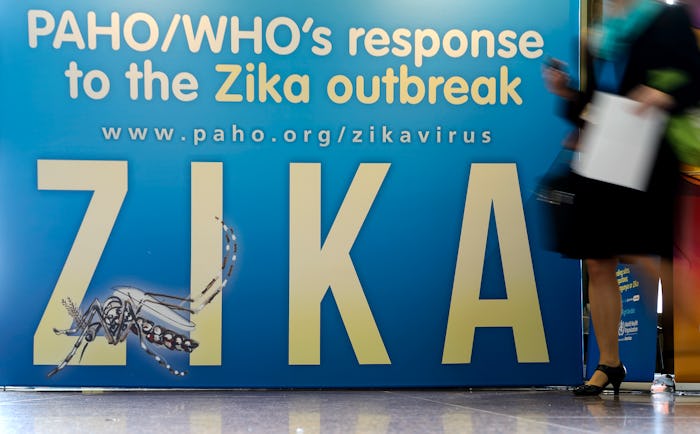Life

How To Get Better From Zika & Prevent The Virus From Spreading To Others
As Zika rates steadily climb in Puerto Rico and across the United States, it's becoming apparent, at the very least, thousands of Americans will have to weather the symptoms and potential long-term health consequences of the virus. Here's what you need to know about how to get better from Zika and help prevent the virus from spreading to others.
Zika is officially here in the U.S. In Puerto Rico alone, based on testing on blood bank donations, officials think the "annual infection rate" for Puerto Rico's 3.5 million people is 25 percent, according to WGN-TV Chicago's reporting on last week's Centers for Disease Control briefing on the spread of Zika in the U.S.
That's particularly scary for pregnant, or would-be pregnant women. Zika is linked with catastrophic birth defects in babies exposed to the virus in utero. According to WGN-TV, CDC reported that 234 pregnant women in the U.S. are infected with Zika. And according to Healthgrove, it's the South and Southeast areas of the U.S., and Florida, in particular, that are most at risk for widespread Zika outbreaks.
So if you happen to contact Zika, how do you get better?
First, go to your doctor to get tested for Zika if you've visited an area with a Zika outbreak and think you could have been bitten by the Aedes mosquito, which carries the Zika virus in addition to other diseases, including dengue and chikungunya.
According to the CDC Zika can also be spread from mother to baby, through sexual contact, and from receiving a blood transfusion contaminated with Zika. The good news is that, compared to other mosquito-borne viruses, symptoms associated with Zika are, according to the CDC, typically mild and generally last less than a week.
Zika symptoms include fever, soreness, headache, and in some cases red eyes, and the CDC's recommended treatments are pretty simple, and sound a lot like mom's remedy for nursing the flu.
1. Rest
Give your body a chance to fight the virus.
2. Fluids
Flush out your system and stay hydrated.
3. Acetaminophen
Take acetaminophen, not aspirin, unless you're sure it's not dengue. Dengue causes bleeding, and aspirin is a blood thinner, so using it could be dangerous.
4. Prevent The Spread
Remember, for the first week you have symptoms, you can spread Zika to others. Take precautions to protect yourself from mosquito bites during the first seven days, to prevent Zika transmission from a mosquito that bites you and then could carry Zika to others. You should also wear a condom when engaging in sexual activity to protect your partner from Zika, the CDC said.